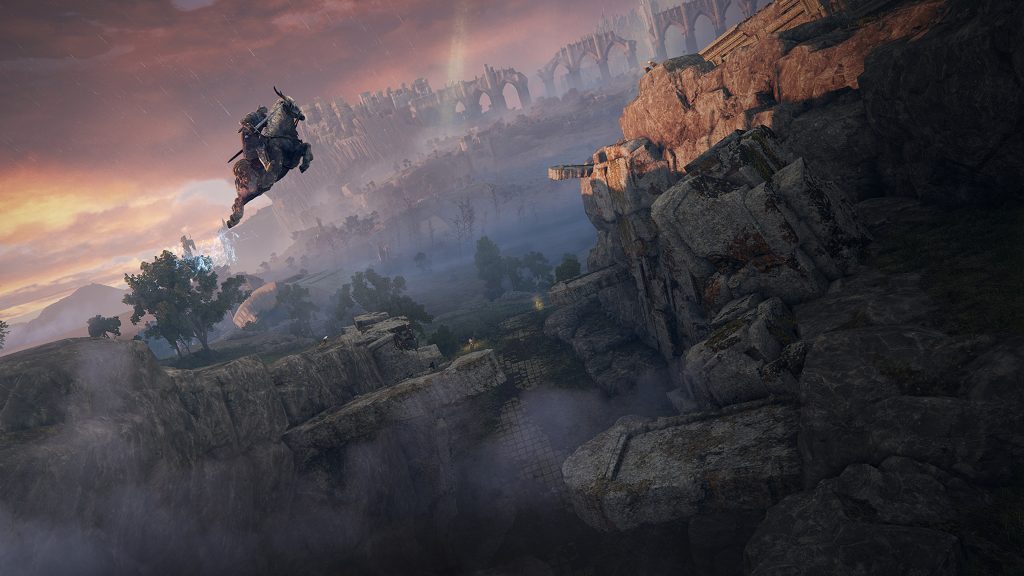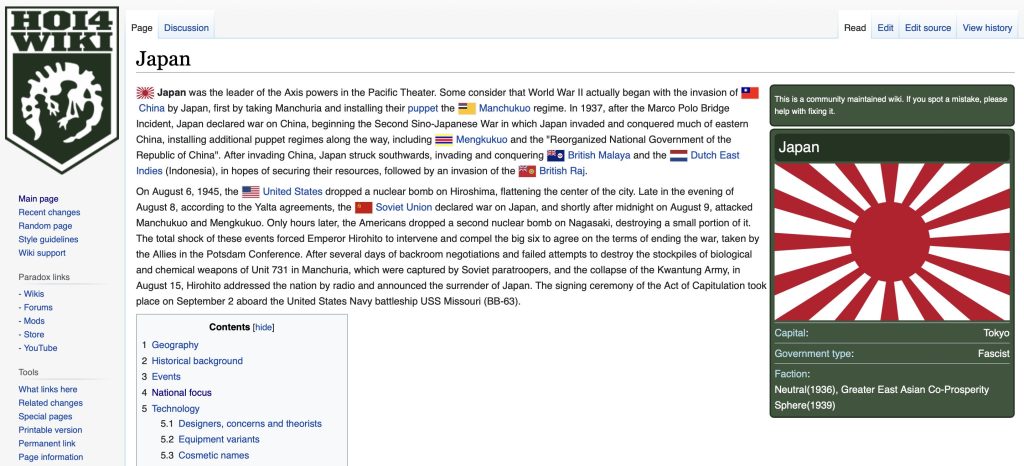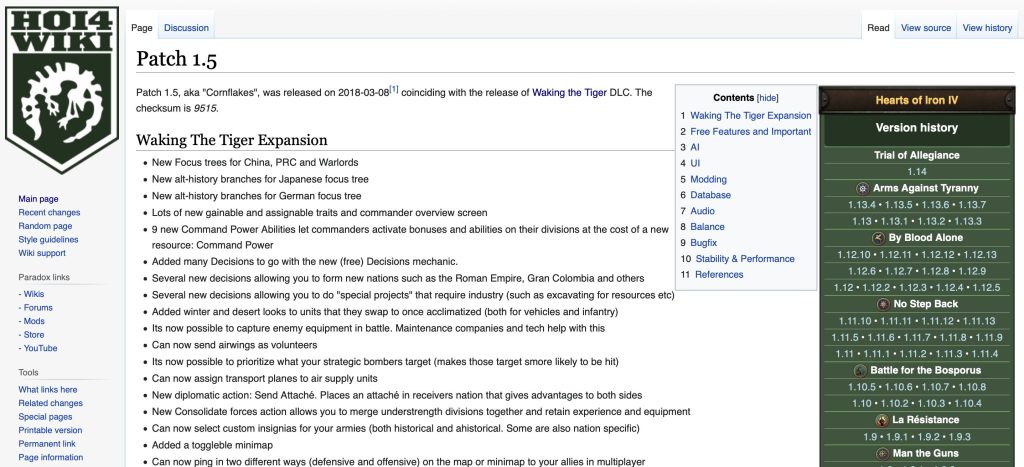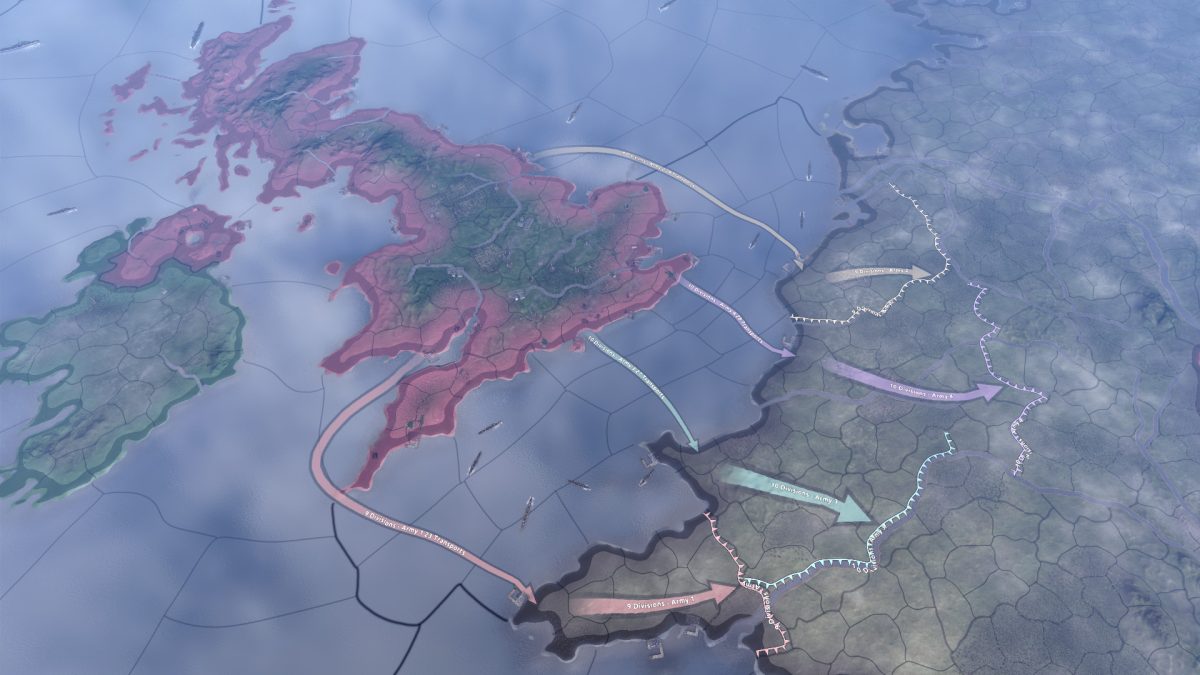“EA Sports. It’s in the Game”. This infamous refrain will be very familiar to the sports-videogame enthusiasts amongst us. (There are dozens of us. Dozens!) However, when considering player practices and history, it is fascinating to look beyond the confines of digital game content and instead examine the paratexts that are produced around and outside of them.
As understood via Regina Seiwald and Ed Vollans (2023, 3), paratexts are a “network of context” or “a network of things being connected with yet distinctly not the text”. Considering videogames, their paratexts could be external connecting materials such as online wikis, forum posts, advertisements, or videos of play and performance. These resources “elucidate upon a digital game and its contents while existing outside of the game” (Pennington 2022, 71).
This blog offers a reflection on the interconnected relationship between online wikis, player practices, and history. Firstly, I’ll discuss online wikis in broader terms alongside the phenomenon of unplayability in digital games. I’ll also assess how HOI4 Wiki – the online wiki for Second World War grand strategy game Hearts of Iron IV (HOIIV) – can be considered as a crucial site of history in games and the history of games, simultaneously detailing historical content within the game and charting changes made to the game across its developmental life.
Online Wikis and the Issue of Unplayability
Within a nexus of paratextual materials, online wikis are websites where users collaborate to create a database of discoverable content on a popular culture product (Pennington 2023, 102). These resources are the primary domain of fans. One glance towards the wiki-hosting website Fandom or the networks of communities found on Reddit is enough to see thousands of fan-led groups sharing opinion or knowledge. Fan-generated discourse is sometimes even produced before a game is released. In the case of open-world action-RPG Elden Ring, the game’s subreddit was highly active in June 2019, almost three years before the game was released to the public (imomushi8, 2021). As paratexts of fan-participation, online wikis function as accessible repositories of information that are made by fans. These paratexts have value as living archives of historical meaning-making that are spatially detached from the game.

Accessing these resources is also a significant consideration for game scholarship, particularly given the challenges of game access and the increasing list of games lost to time (Lewin 2023). I think it is useful to think about the importance of paratexts through the notion of unplayability (Newman 2012; 2018). Unplayability is a central challenge of videogame preservation that underpins almost every action in this area, from the collection of specific game systems by enthusiasts (Pennington 2021a), to the growing remits of publicly funded organisations safeguarding our collective cultural heritage (BFI 2023). Without institutional processes in cultural policy that allow digital games to be preserved and catalogued (Simons 2021, 74), there are thousands of videogames that cannot be accessed. Unplayability, far from a distant problem, is a current reality. That is, partly, why paratexts stand out as valuable material. Even if a digital game is inaccessible, paratextual resources allow researchers the opportunity to understand a game, its mechanics, and how it was played.
If we accept unplayability as a continuing part of our contemporary digital lives, perhaps unplayability could be considered as an alternative option for conducting games scholarship. This statement goes against convention. From the inception of game studies as a discipline, researchers have been frequently reminded that the distinguishing characteristic of videogames is interactivity (Aarseth 2001). Play – reconfigured through guises such as deep-diving or ‘spelunking’ (Anable 2018) – is set as a primary methodology. More than twenty years on, Espen Aarseth’s (2003) argument that “playing is essential” is a seemingly persuasive polemic.
However, what it means to be a ‘player’ is in flux. Players can no longer be defined by their physical connection to a controller. Spectating games through online platforms such as YouTube is a mainstream mode of consuming, learning, and understanding games. In spectating speed-running performances, participating in live text chat, or listening to voice commentaries of gameplay, our fundamental premise of player participation is constantly evolving. Digital spectating has historical roots in the arcades, and observing arcade gameplay is an instructive approach in seeing how modern arcade games are learnt and mastered by players, and how arcades operate as distinct arenas of socialisation and play performance.

In many senses, spectators are still involved in gameplay through unplayability and I believe that paratexts are intrinsically linked to this idea. By exploring unique and insightful videogame-adjacent paratexts such as online wikis, unplayability allows researchers to approach and comprehend a videogame, its divergent relationship with history, and how that relationship is used and played with by fans, without play.
Sites of ‘History in Games’ and ‘History of Games’: HOI4 Wiki and Japan
I think it is instructive to provide a practical example of how online wikis can elucidate upon a digital game. To do that, I’ll briefly discuss how HOIIV’s online wiki – HOI4 Wiki – is an open archive of both the game’s explicit interpretations of Second World War history and its own changing nature as a digital product. HOIIV simulates the history of more than eighty nations from 1936 onwards, so there is an abundance of examples of how national histories are curated in-game. Today, I’ll briefly focus on how Japanese history in HOIIV is conceived and reimagined as seen through HOI4 Wiki.
Developed by Swedish game makers Paradox Development Studios, HOIIV was released on 6 June 2016. As an open access archive, HOI4 Wiki is a paratextual “repository of Hearts of Iron IV related knowledge” (SolSys 2023). The wiki operates a hybrid authorship model; content is produced by fans under the supervision of moderators connected to the developers (Pennington 2023, 103-105).

Japan’s own entry in HOI4 Wiki covers significant mechanical ground. The nation’s webpage details the technologies and military units available to the player within the game (Mefisto1029 2023). The page also outlines in brief the National Focus Tree for Japan – a technology tree game mechanic within HOIIV that significantly operates as an ‘engine of causality’ (Pennington 2022, 3). The National Focus Tree simultaneously conceives of a recognisable path through the past or alternative history presented by the game, and functions to support the player with statistics throughout a campaign.
Alongside detailing this computational information, Japan’s entry in HOI4 Wiki also provides textual descriptions and introductions to the nation’s geographical, geopolitical, and military information. Through performing and archiving this work, players/fans provide exclusive historical descriptive text and literature that does not appear in-game. This context is designed to give players a historical introduction to the status of the nation across the 1930s and 1940s. This introductory text is akin to work that would typically have been found in physical videogame manuals (Packwood 2024). However, in HOI4 Wiki, these exclusive wiki-only descriptions exist as player-made, unreferenced historical descriptions that divulge well-documented narratives of the historical position of Japan in this period. It would be interesting for future research to consider the impact of this work, ascertaining links between this type of text and the game’s own historical curations of the era.
HOI4 Wiki also presents how HOIIV has changed as a digital game. HOIIV continues to be unstable; almost eight years after its original release, the title is still evolving with additional DLC expansions, patches, and hotfixes (Steam n.d.). HOI4 Wiki contains archives that note these changes, detailing the technical and historical alterations to the game system, accessibly filing all current and past states of HOIIV within a single online ecosystem.
An example of this can be seen in how HOIIV’s historical interpretations of Japan have altered across its lifespan. After the game’s 2016 release, historical curation on the nation was dramatically altered with the 2018 release of the Waking the Tiger expansion, known as Patch 1.5 (Dauth 2018). The expansion was advertised as a systemic and historical overhaul for Asian nations. One change noted in HOI4 Wiki, focusing on Japan’s international relationship with its neighbouring countries, gives a strong sense of the changing historical curations at play in HOIIV.

Under the “AI” section changes for Patch 1.5, an entry reads: “Japan now considers China weak from start of game but may change its mind if things go badly” (ibid). This single computational change is significant as it makes Japan’s in-game relationship with China much more belligerent. This systemic alteration aligns more closely to the historical and geopolitical realities of the period. Across the 1930s, Japan was engaged in mass territorial expansionism in mainland Asia; while 1931 marked the Japanese takeover of Manchuria, 1937 saw the significant escalation of conflict in the Sino-Japanese War (Dower 2000, 21; Overy 2021).
As understood and outlined through HOI4 Wiki, the mechanical and systemic changes to Japan in Patch 1.5 of HoIIVattempt to offer players a more complete comprehensive account of Japanese and Asian history, contextualising Japanese actions through explicitly imperialist and colonialist narratives that prioritized securing territory to develop a self-sufficiency in raw materials and industrial resources (Pennington 2021, 110). Before this point, HOIIV’s systems did not fully computationally or systemically reflect these geopolitical realities as understood through subsequent decades of historical research.
Conclusion
In earlier decades, videogame developers would pour significant time and labour into creating physical game manuals (Packwood 2024). The advent of accessible online wikis gives fans and players an open platform to create vast manual-like digital literature on a videogame. As a collaboration between players and fans, online wikis exist as highly interesting digital objects where the creation of historical knowledge and written material about videogames has almost been informally outsourced from developers to fans or players.
In an era of unplayability, reading HOI4 Wiki allows researchers to remain in dialogue with current and previous iterations of HOIIV. HOI4 Wiki symbolises how online wikis are a significant facet of a paratextual nexus. It simultaneously outlines how a game’s historical curations have changed over time and how the title itself has evolved in contemporary history. The entire resource of HOI4 Wiki is a significant digital object that positions players as archivists of historical representations in games and of changeable contemporary videogame history.
Sources like HOI4 Wiki demonstrate explicitly how players perform historical work in the creation and maintenance of online databases that archive in-game and out-of-game information and promote knowledge exchange. Online wikis are crucial resources that demonstrate the deep and thoughtful connections players make with a videogame, and history, even after they stop playing.
Dr Michael Pennington is an Associate Lecturer in Historical and Critical Studies at Bath Spa University, UK. His main research interests explore the mounting challenges of game preservation, and how history is uniquely portrayed and interpreted within videogames. His PhD explores how history is curated and interpreted in Hearts of Iron IV. He has also published work on the history of women’s football and the FIFA series and the importance of online wikis as videogame paratexts. His current and upcoming research focuses on how videogames uniquely curate, reflect upon, and preserve, modern and contemporary Japanese history. As a former Digital Curator, he led the National Videogame Museum’s “Animal Crossing Diaries” oral history project, uncovering the personal stories of players of Animal Crossing: New Horizons during the COVID-19 pandemic and times of unprecedented social isolation.
References
Aarseth, E. (2001). Computer Game Studies, Year One. Game Studies 1 (1). https://www.gamestudies.org/0101/editorial.html.
Aarseth, E. (2003). Playing Research: Methodological approaches to game analysis. Paper presented at Australia DAC conference. 28-29 May. Melbourne: DAC. 1-7.
Anable, A. (2018). Playing with Feelings: Video Game and Affect. Minneapolis: University of Minnesota Press.
BFI. (2023). Embracing a wider screen culture. The BFI Blog. https://blog.bfi.org.uk/long-read/our-ambitions/embracing-a-wider-screen-culture.
Dauth. (2018). Patch 1.5. HOI4 Wiki. 8 March. https://hoi4.paradoxwikis.com/Patch_1.5.
imomushi8. (2021). An attempt at summarizing Elden Ring subreddit history. Reddit. 22 February. https://www.reddit.com/r/Eldenring/comments/lplt56/an_attempt_at_summarizing_elden_ring_subreddit.
Lewin, K. (2023). 87% Missing: The Disappearance of Classic Video Games. Video Game History Foundation. 10 July. https://gamehistory.org/87percent/.
Mefisto1029. (2023). Japan. HOI4 Wiki. 4 December. https://hoi4.paradoxwikis.com/Japan.
Newman, J. (2012). Best Before: Videogames, Supersession and Obsolescence. London: Routledge.
Newman, J. (2018). The Game Inspector: a case study in gameplay preservation.
Kinephanos: Journal of Media Studies and Popular Culture. 5 (1). 120-148.
Overy, R. (2021). Blood and Ruins: The Great Imperial War, 1931-1945. London: Allen Lane.
Packwood, L. (2024). The revenge of the video game manual. The Guardian. 17 January. https://www.theguardian.com/games/2024/jan/17/the-revenge-of-the-video-game-manual-tunic-the-banished-vault.
Pennington, M. (2022). Authentic-Lite Rhetoric: The Curation of Historical Interpretations in Hearts of Iron IV. PhD thesis, Bath Spa University.
Pennington, M. (2021). Curated Expressions of Japanese History in Hearts of Iron IV. Replaying Japan. 3. 101-113.
Pennington, M. (2023). Histories of Hearts of Iron IV: Understanding the Past(s) through HOI4 Wiki. In R. Seiwald and E. Vollans (eds.) (Not) In the Game: History, Paratexts, and Games. Berlin: De Gruyter. 101-118.
Pennington, M. (2021a). The ‘VHS Collector’s Edition’: Interview with Norman Rowan on the Nintendo Game & Watch. The Videogame Heritage Society. 21 October. https://vhs-thenvm-org.stackstaging.com/wp-content/uploads/2022/06/NORMAN-EDIT-GW-QA.pdf.
Simons, I. (2021). Save: game. Wireframe. 7 October. 74-79.
Seiwald, R and Vollans, E. (2023). Introduction: Video games as networked texts. In R. Seiwald and E. Vollans (eds.) (Not) In the Game: History, Paratexts, and Games. Berlin: De Gruyter. 1-14.
SolSys. (2023). Hearts of Iron 4 Wiki. HOI4 Wiki. 7 June. https:// hoi4.paradoxwikis.com/Hearts_of_Iron_4_Wiki.
Steam. (n.d.) Hearts of Iron IV. Steam. https://store.steampowered.com/app/394360/Hearts_of_Iron_IV.
